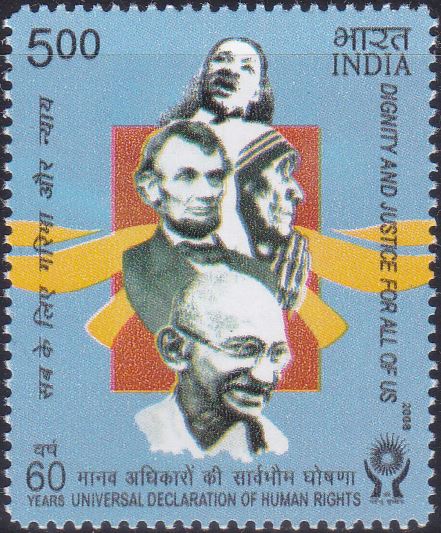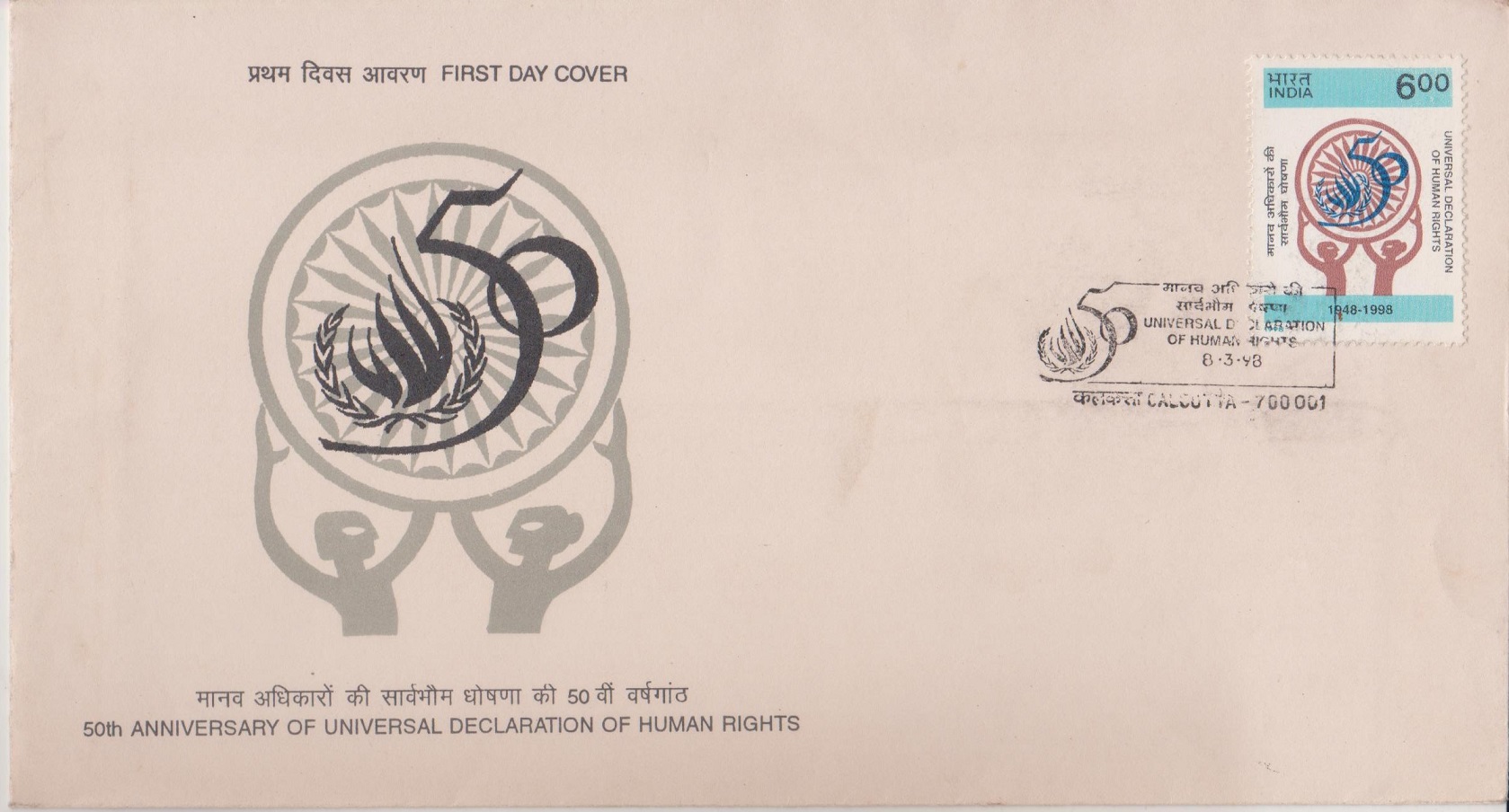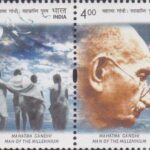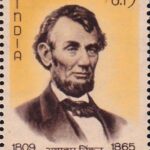
India on Dr. Martin Luther King
A commemorative postage stamp on Martin Luther King Jr., an American Baptist minister, a leader in civil rights movement of United States, 1st President of Southern Christian Leadership Conference (SCLC) (1957-68) :
 Issued by India
Issued by India
Issued on Jan 25, 1969
Issued for : India has honoured Dr. King by posthumously bestowing upon him the Nehru Award for International Understanding for 1966. The Indian Posts and Telegraphs Department feels privileged to pay its tribute to this great son of America, indeed of the world, by issuing a commemorative stamp in his honour. The issue coincides with the formal presentation of the Award to Mrs. King who has so graciously come over to this country to receive it.
Description of Design : The design of the Stamp is horizontal and depicts a portrait of Dr. Martin Luther King.
Type : Stamp, Postal Used
Colour : Raw Sienna
Denomination : 20 Paise
Overall Size : 3.34 X 2.46 cms.
Printing Size : 2.99 X 2.10 cms.
Perforation : 14 x 13½
Watermark : Printed on unwatermarked paper
Number Printed : 35,00,000
Number per issue Sheet : 54
Printing Process : Photogravure
Designed and Printed at : India Security Press
Name : Michael King Jr.
Born on Jan 15, 1929 at Atlanta, Georgia, United States
Died on Apr 4, 1968 at Memphis, Tennessee, United States
About :
- Dr. Martin Luther King, the great Civil Rights leader of the United States of America joined the ranks of the immortals of history on April 4, 1968. An assassin’s bullet put a premature end to his crusading career, for Dr. King was not yet forty.
- The second of three children of a Baptist minister, Dr. King was born on January 15, 1929. He came of a family with a high clerical tradition. No less than five of his ancestors and kinsmen were clergymen. It was no surprise that he accepted the pastorate in the Negro Baptist Church at Montgomery, Alabama in 1955.
- While still a student, he had been profoundly influenced by Henry David Thoreau‘s essay on “Civil Disobedience.” Later, he had occasion to listen to a lecture on Mahatma Gandhi and this had an “electrifying” effect upon him. He made a study of Gandhiji‘s methods of nonviolent mass struggle. The movements against racial tyranny and intolerance which he later led owed as much to his Christian background as to Gandhiji‘s influence.
- His first great role in public life came late in 1955 when he was called upon to lead the Montgomery bus boycott. A Negro woman was arrested when she refused to give up her bus seat in favour of a white passenger. The Negroes who formed about 40 per cent of the population gave up bus rides in protest. This continued for a year and the bus line lost heavily. Dr. King was harassed and even jailed by the city authorities during this period. But the movement finally succeeded when a Federal court ruled that racial segregation on buses was unconstitutional. The next great landmarks were the civil disobedience movement at Birmingham, Alabama in 1963, and the great protest march on Washington later that year. About 250,000 people both white and Negro joined that march. Dr. King was now in the forefront of the fight for Civil Rights, a fight eschewing violence and appealing only to moral force. World-wide recognition came to him when he was honoured with the Nobel Peace Prize in 1964.
- Dr. King‘s peaceful methods of agitation were disliked by the Negro extremists. The white racists of course considered him their enemy. That attempts would be made on his life was not entirely unexpected. It is believed that it was a white racial fanatic who fired the fatal shots.
- Thus was cut down in its prime a life dedicated to the cause of equality among men. But the spirit of Martin Luther King will live on so long as there is injustice to be fought. His life is of particular significance to us in this country. The close parallel between his mission and Mahatma Gandhi‘s is an enduring link that will bind us to Martin Luther King‘s memory. Both great leaders made the supreme sacrifice for the cause they held so dear.








Hi
What’s the value of this stamp?
[…] emerging as the national fabric of India. And Gandhi set an example to other world leaders such as Martin Luther King Jr., Nelson Mandela and Aung San Suu Kyi who drew motivation from his principles and strategies of […]
[…] “… Love, for Gandhi, was a potent instrument for social and collective transformation. It was in this Gandhian emphasis on love and non–violence that I discovered the method for social reform that I had been seeking for so many months…” – Dr. Martin Luther King (Jr.) […]
[…] My Experiments With Truth and contributions from international figures like Eleanor Roosevelt and Dr. Martin Luther King Jr. The Hindustan Times was also known for its distinguished journalists including cartoonist K. […]